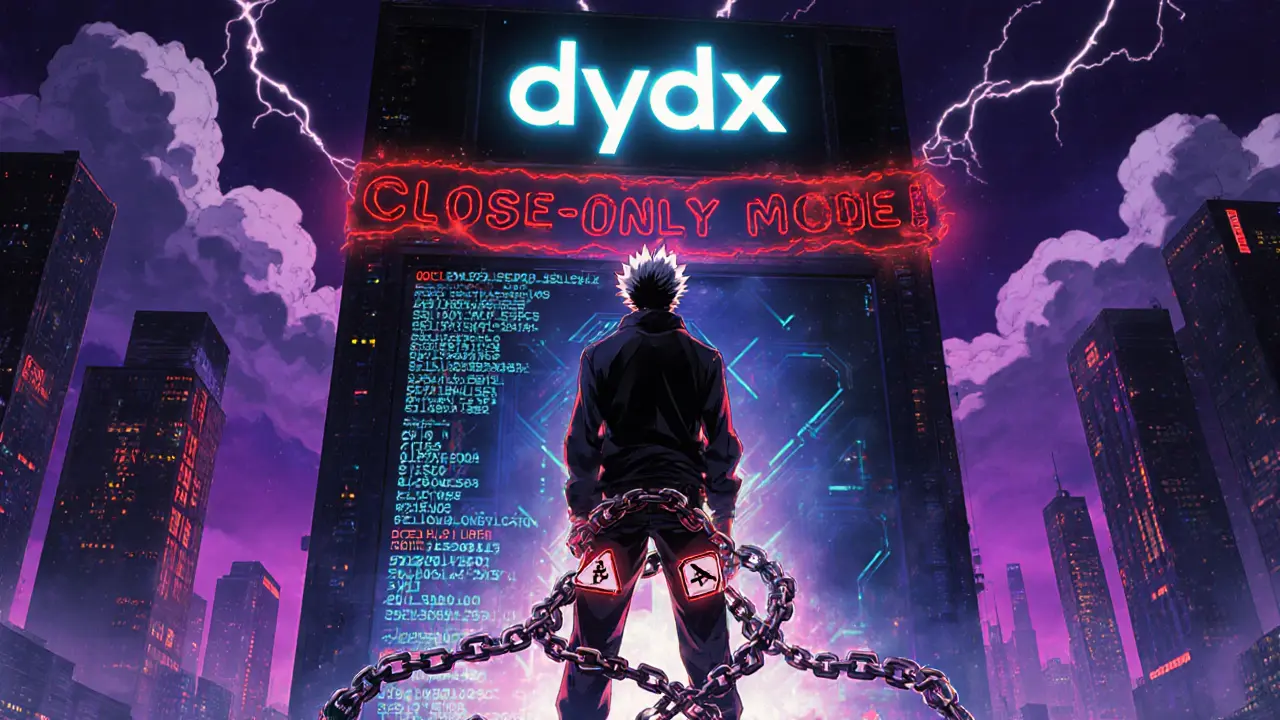

When you see a dYdX geo-block, a restriction that prevents users from specific countries from accessing the dYdX trading platform. Also known as geo-fencing, it’s not a glitch—it’s compliance. dYdX, a top decentralized exchange for margin trading and perpetual contracts, follows global regulations by blocking access from places where it doesn’t have legal clearance, like the U.S., Canada, or parts of Asia. This isn’t about technology failing—it’s about legal risk management. If you’ve ever tried logging in and got shut out with no clear reason, you’ve hit one of these blocks.
Geo-blocking isn’t unique to dYdX. Many DeFi platforms, from Uniswap to Polkastarter, face pressure from regulators like the SEC or CBN. But dYdX stands out because it’s one of the few platforms that still lets you trade with leverage without giving up control of your keys—until you’re in a restricted zone. The crypto exchange compliance, the process platforms use to follow local laws by limiting access based on location. Also known as geolocation filtering, it’s now a standard part of running any serious crypto service. That’s why you’ll find posts here about ZBX Exchange being MiCA-compliant, NovaDAX serving Brazil, and Nigeria’s 2025 exchange restrictions. These aren’t random—they’re all part of the same global patchwork of rules that force platforms to choose between growth and legality.
What does this mean for you? If you’re blocked, you’re not alone. Millions of traders in regulated regions have to find alternatives—whether that’s using a non-custodial wallet on a different chain, switching to a platform like ABX.io that operates under different licensing, or simply waiting until rules change. The blockchain compliance, how decentralized systems adapt to legal frameworks without central control. Also known as regulatory alignment, it’s one of the biggest challenges in crypto today. Posts in this collection cover exactly that: how to spot scams like Hello Global Exchange, how to claim airdrops safely when you’re in a gray zone, and how to protect your assets when platforms suddenly cut you off. You’ll find deep dives on immutable blockchain records, state channels, and tokenized ETFs—all tools that work whether you’re blocked or not.
There’s no magic fix for a dYdX geo-block. But understanding why it exists helps you make smarter moves. Whether you’re trading on Binance, exploring Cardano airdrops, or studying India’s VDA tax rules, the same principle applies: location matters. This collection gives you the real-world context behind the restrictions—so you know what’s legal, what’s risky, and what’s worth your time.

dYdX claims to be a decentralized crypto exchange, yet blocks users from over 20 countries including the U.S., UK, and Canada. This article breaks down how and why a platform marketed as trustless still enforces geo-restrictions through centralized control.